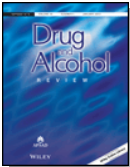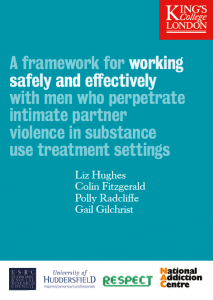The UK government has now included controlling behaviour and coercive control as offences in its Violence against Women and Girls Strategy VAWG.
Within controlling behaviours, Technology Facilitated Abuse (TFA) is also thought to be widespread with mobile technologies providing a means for perpetrators to easily and repeatedly control, harass, stalk and intimidate partners from a distance.
This paper provides evidence of controlling behaviours and TFA amongst men attending substance use treatment in England and Brazil. In secondary analysis of two cross sectionals studies, a significant proportion of men receiving treatment for substance use reported perpetrating controlling behaviours (64% in England and 65% in Brazil) and TFA (33% in England and 20% in Brazil) towards their current/most recent partner. The paper argues that further research is needed to consider the extent to which substance use intoxication and related behaviours (craving, purchasing and sharing substances) may make controlling behaviours more likely amongst substance users and that controlling behaviours and TFA should be included in interventions to address IPV perpetration in this population.
You can download this paper here


